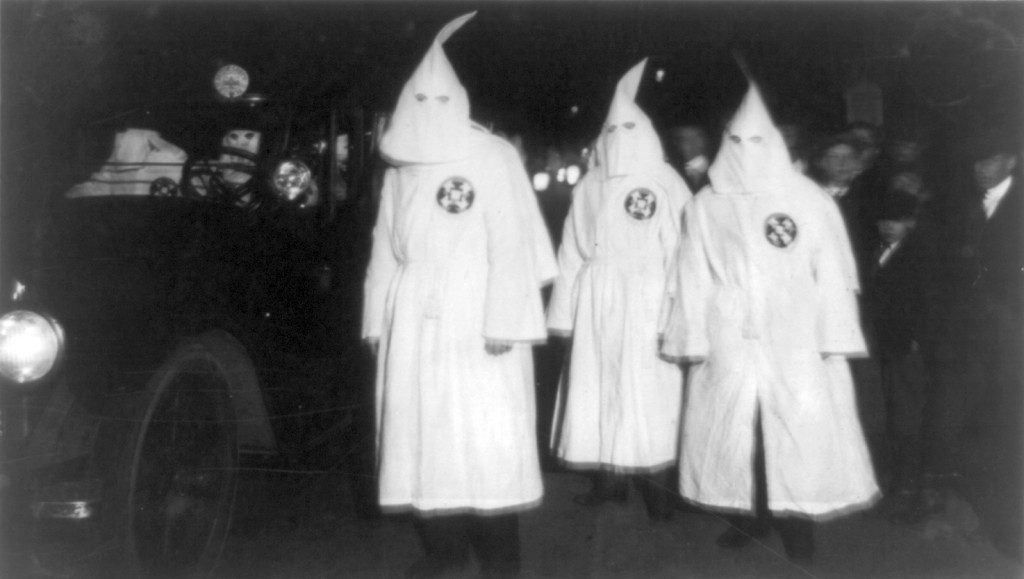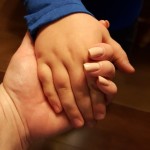“I’m not a racist…”
A statement almost invariably followed by something racist. But it’s okay, apparently, because one has already absolved oneself of racism. Being a racist, after all, is not nice. Sure, there are a few niche, shadowy groups where people openly boast of racism, but those who say “I am not a racist” are usually quick to point out that these groups are few and rare, and not representative of the culture as a whole.
“I’m not a racist” means repudiating these groups. We have an image of racism as associated with KKK hoods, toothless oafs with bad grammar, trailer parks. No one wants to be assocated with these. We want to be able to say racist things without being racist.
Of course, envisioning racism as niche and toothless means closing our eyes to our own recent history. The Alt Right is spoken of as normalizing racism in slick suits and shiny white teeth, but this is not a new thing. Consider the affluent white people who opposed civil rights. Take a look at pictures from the Greensboro Sit-ins: clean cut respectable young white males harassing peaceful protesters, throwing eggs at them, even setting people on fire. And this was in 1960. My father was out of college by then (and on the side of the activists). What happened to the white men who harassed the activists? Did they see the error of their ways? Or did they retreat into safer, more subtle forms of racism? And what positions did they hold, in our nation, for the decades following the Civil Rights era?
Are they saying “I’m not a racist…”?
Projecting racism onto only a few weirdo groups has several rhetorical effects.
First, it scapegoats the less privileged. As Jesse A. Myerson wrote in a recent piece in The Nation:
But scapegoating poor whites keeps the conversation away from fascism’s real base: the petite bourgeoisie. This is a piece of jargon used mostly by Marxists to denote small-property owners, whose nearest equivalents these days may be the “upper middle class” or “small-business owners.” FiveThirtyEightreported last May that “the median household income of a Trump voter so far in the primaries is about $72,000,” or roughly 130 percent of the national median. Trump’s real base, the actual backbone of fascism, isn’t poor and working-class voters, but middle-class and affluent whites.
While not all Trump voters are racist, it is certainly the case that racism figures much more heavily in his base, and the scapegoating of poor whites for creating Trump runs parallel with the scapegoating of the poor rural “hick” as the locus of racism.
This, in turn, serves the purpose of deflecting from one’s own subtler, more respectable forms of racism. If we’re all focusing on a few raggedy oddballs living down in the holler, genteel racism goes unnoticed. Or, perhaps more dangerously, appears as just normal. It’s normal to make sad sounds about absent fathers in Black communities, without asking about the legacy of abuse and injustice that tore families apart for generations. It’s normal to tell funny stories about the behavior of Black persons, because it’s not like you want them whipped and handcuffed, right? So it must be okay.
The third effect here is that, by focusing only on extreme racism, one insinuates that racism isn’t really an issue. Since the toothless hick has no power, it would therefore follow that racism has no power.
And this, of course, allows one to deride activists and groups like BLM as “crybabies.” If there’s no real racism, everyone talking about it should just shut up and focus on real problems, like the moving of low-income families into our communities (I’m not a racist, but…).
“I’m not a racist” seems like a virtuous thing to say, because we know racism is bad, and we don’t want to be bad. But saying one isn’t a thing is not sufficient. If I murder, and say I’m not a murderer, this does not make me a better person; it just adds lying and cowardice to my list of sins. Saying one isn’t a racist doesn’t make it so.
If one recognizes that racism is evil, and truly wishes to avoid participating in evil, a better statement might be “I don’t want to be a racist” – because this leaves open the very real possibility that one might be harboring racist prejudices, without being aware of it. Racism is written into our culture, so it would be very hard, as a privileged White person, to grow up without absorbing some of it. Even as I make an effort to point out and citique racist trends to my children, I become aware of subtle way is which racism has slipped into my way of thinking.
At which point perhaps the best thing to say is in the form of a confessional: “I might be a racist.” As a Christian, especially, I should be alert to the fact that I am a sinner, and being a sinner often means doing bad things without realizing it. Or realizing it, and hoping no one notices. Trying to get away with it.
I might be a racist. I might tell jokes that demean and dehumanize a demographic that has already been subjected to injustice, and this is bullying (whereas mocking the powerful can be an act of virtue). I might instinctively judge Black persons according to certain stereotypes. I might view “Black-sounding names” as seeming less respectable. I might try to inhabit certain Black-woman stereotypes in order to cash in on performing sexuality, without considering the harm that has been done to Black women because men have hyper-sexualized them. I might simply not notice racism, because it doesn’t affect me. I might think it worse to be accused of racism once, then to be the victim of it my whole life.
When topics of racism come up, among White persons, how quickly the conversation turns to affront at having anyone judge them as racist. This becomes the whole point. Or maybe the point is the wonderful things we have done, personally, to be non-racist.
Recently I was in a conversation about race and racism, and a Black man stated that he no longer had any reason to trust White people. How offended I was. A series of thoughts went through my head: he’s painting with a broad brush…I’m not like them…I oppose racism…I did everything I could to oppose Trump…I’m Jewish, not even really White! This guy is nuts!
Then I thought: if this is how I react, to one singular instance of being regarded according to a stereotype, how can I possibly blame this man for thinking this way after a whole lifetime of being judged according to stereotypes, and not just be random persons online, but by teachers, law enforcement officers, employers, politicians, religious leaders?
The only thing left to say after that was: I’m sorry.
image credit: https://commons.wikimedia.org/wiki/File:Ku_Klux_Klan_Virgina_1922_Parade.jpg












